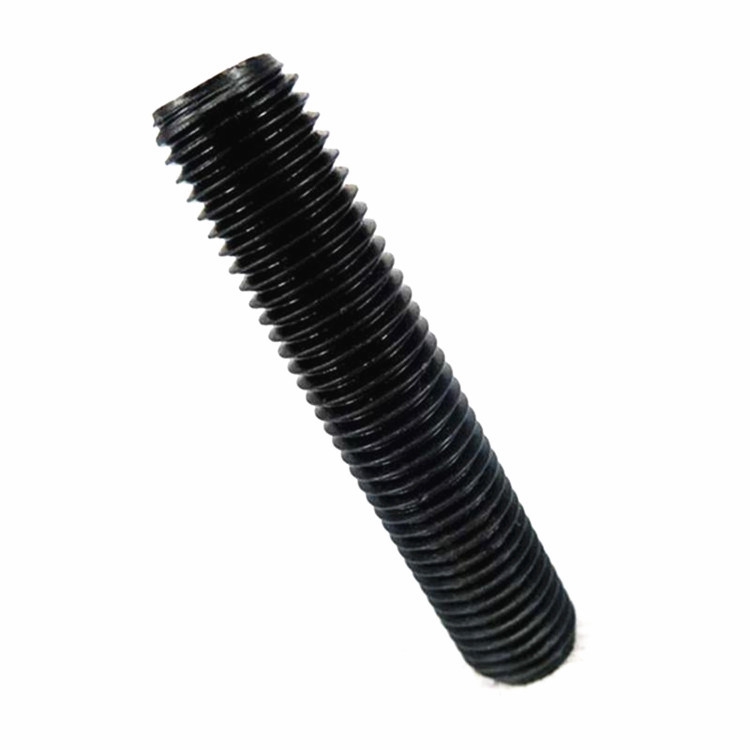China's U Nuts and Bolts Market Trends and Innovations for 2023
Oct . 22, 2024 11:55 Back to list
China's U Nuts and Bolts Market Trends and Innovations for 2023
The Impact of China's U Nuts and Bolts Industry on Global Supply Chains
The fast-paced world of manufacturing is fundamentally intertwined with the production and distribution of various components, including nuts and bolts. Among the leading players in this field, China stands out as a significant contributor, especially in the production of U nuts and bolts. This article explores the role of China’s U nuts and bolts industry in global supply chains, its innovations, challenges, and future prospects.
Understanding U Nuts and Bolts
U nuts, often referred to as U-shaped nuts or clip nuts, are essential fasteners that play a critical role in a variety of applications, ranging from automotive to aerospace and consumer electronics. Their design allows for quick assembly and disassembly, making them preferred choices for manufacturers that require efficient production processes. Bolts, likewise, are foundational components that secure two or more parts together, and their quality directly impacts the performance and safety of the end products.
China’s Dominance in Production
China's prominence in the nuts and bolts sector can be attributed to several factors. The country boasts an extensive network of manufacturers equipped with advanced technologies and a skilled workforce. As of recent years, China has invested heavily in automation and smart manufacturing, which increases production efficiency and lowers costs.
Timely delivery and scalability are also critical elements that enhance China’s position in the global market. With an unparalleled ability to produce large quantities of U nuts and bolts, Chinese manufacturers can cater to both domestic and international demands. This adaptability allows them to respond swiftly to market fluctuations and customer requirements, making China the go-to source for these components.
Innovations Boosting Competitiveness
The competitive landscape in the U nuts and bolts market is continuously evolving, driven by innovation. Chinese manufacturers are increasingly adopting advanced production technologies, such as artificial intelligence (AI) and robotics, to enhance manufacturing processes. These innovations not only improve precision but also reduce waste and energy consumption, aligning with global sustainability trends.
china u nuts and bolts

Moreover, the rise of additive manufacturing, or 3D printing, presents new avenues for producing custom U nuts and bolts. This technology enables manufacturers to create complex designs that were previously impossible with traditional methods, thereby broadening the scope of application and optimizing performance.
Challenges Faced by the Industry
Despite its strengths, China's U nuts and bolts industry is not without its challenges. Trade tensions and tariffs imposed by several countries can impact pricing and competitiveness, leading manufacturers to rethink their global strategies. Furthermore, the industry grapples with environmental concerns, as manufacturing processes often result in carbon emissions and waste.
To address these challenges, many manufacturers are beginning to prioritize sustainable practices. Investments in cleaner technologies and adherence to international environmental standards are becoming increasingly crucial not only for compliance but also as a competitive differentiator.
Future Prospects
Looking ahead, the future of China's U nuts and bolts industry appears promising. With ongoing advancements in technology and an emphasis on sustainability, Chinese manufacturers are set to maintain their leadership in the global market. Moreover, as the push for localized supply chains grows—especially in the wake of recent global disruptions—China's robust infrastructure and logistics can provide a significant advantage.
As industries seek reliable suppliers who can ensure quality and consistent delivery, China's U nuts and bolts industry is well-positioned to meet these demands, further solidifying its integral role in global supply chains. Collaborations with international partners and an increased focus on research and development will likely spur innovation and growth in the coming years.
In conclusion, China's U nuts and bolts industry not only supports a vast array of sectors but also exemplifies resilience and adaptability in a rapidly changing global landscape. As the world moves towards a more interconnected and technology-driven future, the role of these small yet significant components in facilitating progress cannot be underestimated.
Latest news
-
High-Quality Panel Stud Bolt Reliable Panel Stud Bolt Factory & Suppliers
NewsJul.08,2025
-
High-Precision Fine Thread Locknuts Manufacturer & Supplier Custom Solutions
NewsJul.08,2025
-
PH Imperial Stud Bolt – High Strength Fasteners from Leading Supplier & Factory
NewsJul.07,2025
-
High-Quality Allen Wrench Bolts Leading Factory, Company & Suppliers
NewsJul.07,2025
-
Wholesale Ball Stud Bolt - High Quality Supplier & Factory Price Reliable Wholesale Ball Stud Bolt Company
NewsJul.06,2025
-
High-Strength Alloy Bolts Manufacturer & Supplier Quality Alloy Fasteners Factory
NewsJul.06,2025
